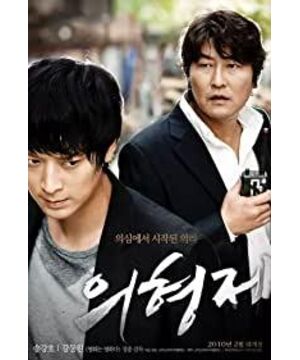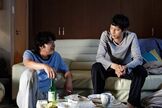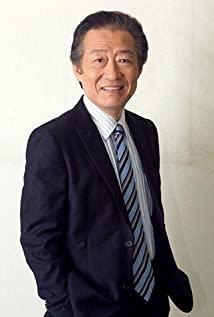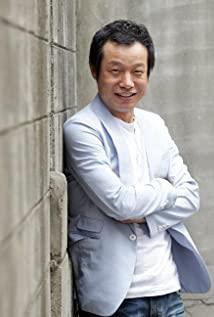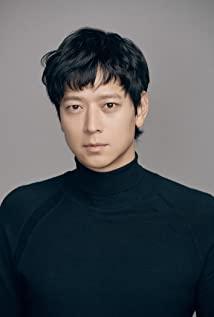The identity and background of the characters are the biggest reasons for the choice of behavior, and also an important driving force for the development of the film. In the first twenty minutes, people thought it was an action movie, a Hollywood-style or Hong Kong-style duo fight. It's not an action movie, however, after which the film begins to moderate and the relationship between the two men develops into the main focus. If the two were of the opposite sex, it would also be a moving love story; their mutual stalking was like the emotional solvent and occasional suspicion between lovers. The ending is just like the title, and the two become brothers, just like the result of a romantic comedy.
Compared with the real North-South issue, this ending seems too perfect. Assuming that the director's view of the North-South issue is as presented in the film does not provide a realistic justification for the film. It's not an action movie or a comedy, and the topics it touches, its focus on reality, keeps it from being a pure entertainment movie. In my opinion, the Hong Kong film "Provincial and Hong Kong Flag Soldiers" is a good-looking shootout action film. It doesn't matter if it's borderline with other factors, it's just to add some topics. And "Brothers of Righteousness" is different. The north-south issue it involves is the foundation of the entire film. If this setting is removed, the entire film cannot stand up.
The two agents shook hands and made peace, and life was uneventful, as if all problems had been resolved. This is the movie's cure for the wishful thinking of reality. The North-South problem in reality is far more serious and difficult to bridge than the news broadcast in the movie. It can be said that it is a transformation of romanticism to realism. As we all know, in the course of literary history, it is realism that kills romanticism; in terms of movies, Westerns have gone from John Ford ("Flying Mountain") to Sam Pekinfa ("Billy the Kid") to Kling T. Eastwood ("Unforgivable"), every step, the romantic and idealistic elements fade away, and the hero gradually walks off the altar and into reality. Today's commercial films such as "The Righteous Brothers" do the opposite. The establishment and concept of brotherhood in the film are completely different from the usual dramatic rupture and recovery of brotherhood in Hong Kong films. "). True love in "Titanic" transcends class, and the friendship in "Brotherhood" transcends ideology, and is essentially a form of dream.
After watching the film, South Korean audiences discussed a series of issues: ideological division, North Korean nuclear issue, North-South reconciliation, etc. These subsequent chain reactions proved the success of the film. Whether this is the director's original intention or not, the ending he designed is obviously amusing - for Koreans, an overly happy ending is not so much romanticism as it is commercialism's simple handling of real problems.
In Kim Ki-deok's work "Unknown Recipient", a father who participated in the Korean War preached to a person who showed off his medal: It was his own people who were killed, so what's there to brag about! This is an unavoidable pain for both North Korea and South Korea. German director Herzog once traveled the entire border of East and West Germany in 1984, starting from Zahran, where he lived as a child. He believes that a country divided in two has no real core, no heartbeat can be heard in its heart, and that East and West Germany must come together. He also believes that Ireland and Northern Ireland, North and South Korea will one day eventually become a country, because for a country, in addition to its cultural and political destiny, it also has a geographical destiny. If Herzog's prophecy comes true at some point in the future, then the relations between the people of North and South Korea will not have to overcome all kinds of obstacles to be as good as in the film, a nation that is a brotherhood, does not need to make brothers in the film Love, don't have to talk about it again: If you can be brothers...
View more about Secret Reunion reviews


